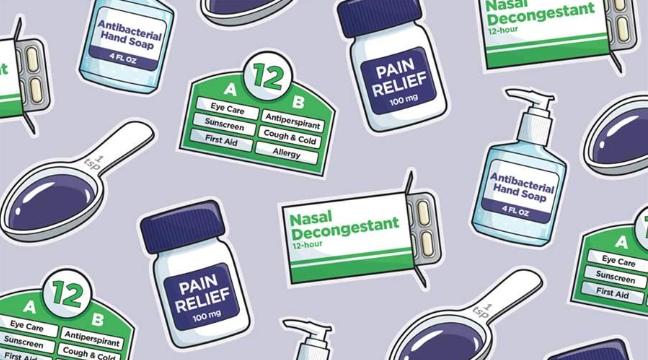Introduction:
A variety of health issues can be quickly alleviated thanks in large part to over-the-counter drugs. In Canada, over-the-counter medications are used to treat minor issues including allergies and headaches. It raises questions about their safety and regulation, notwithstanding the ease with which these treatments can be obtained. A strong Canadian pharmacy system is crucial to ensuring the efficacy and security of over-the-counter medications for the entire population of Canada.
In the field of healthcare, striking the right balance between accessibility and safety is crucial for boosting societal wellbeing. The best example of this complex balance is over-the-counter medicines. They provide effective treatments for minor health issues, but strict control is necessary to ensure their dependability and effectiveness. Managing the complex dance of OTC drug regulation and safety is a complicated task requiring cooperative efforts from regulatory agencies, medical professionals, and the pharmaceutical industry. This group effort aims to protect the public’s health, which is its top priority.
Regulation of OTC Medications:
To ensure their efficacy, safety, and accurate labelling, non-prescription drugs must adhere to strict standards. The duty of authorising and supervising non-prescription medications falls to Health Canada, the country’s federal health agency. These medications must pass stringent scientific testing to prove their acceptability and efficacy for self-administration prior to being made available. Clinical trials, a rigorous analysis of the active ingredients, probable interactions, anticipated adverse effects, and recommended dosages are all included in this thorough investigation.
Health Canada coordinates a thorough assessment including medical professionals, chemists, and researchers to ensure adherence to recognised safety and efficacy guidelines. Before an OTC medicine enters the market, its efficacy and safety are determined through thorough scientific assessments. This extensive examination process involves input from Health Canada as well as scientists, doctors, and researchers. These stakeholders’ collective knowledge guarantees that over-the-counter medicines adhere to accepted standards, giving customers reliable options for self-care.
Safety Measures in OTC Medications:
Concern for the protection of customers from potential threats is crucial when it comes to the security of over-the-counter drugs. Canadian pharmacies play a crucial role in protecting the safety of over-the-counter medications thanks to their extensive knowledge in medication management. Informing clients about the proper use of OTC drugs, potential drug interactions, and any necessary precautions is crucial for chemists. This specific guidance enhances patient comprehension and lessens the risks associated with inappropriate use.
Canadian chemists provide one-on-one consultations to give people useful information and guidance so they may make educated decisions about using OTC medications.
The knowledge and commitment of Canadian pharmacies and pharmacists strengthen the safety procedures for OTC drugs. Their role in medication management, education, and patient-centered care not only ensures the safe use of OTC medications but also empowers consumers to make informed decisions about their health. Through this collaborative effort, Canadian pharmacies play a pivotal role in upholding the well-being of individuals seeking relief from minor health concerns while promoting a culture of responsible self-care.
Labeling and Consumer Education:
OTC medicine safety fundamentally depends on clear and thorough labelling. The Canadian pharmacy system collaborates with regulatory bodies to guarantee that the information on the labels of over-the-counter medicines is correct and clear. The purpose of the medication, the components that make it work, how much to take, any possible adverse effects, and any contraindications are all disclosed on the label. With this knowledge, consumers are more equipped to choose OTC medications wisely, which helps avoid misuse or negative side effects. Because Canadian pharmacies and regulatory agencies work together to ensure that OTC medication labels comply to high standards of clarity, the likelihood of inadvertent abuse is reduced.
Monitoring and Reporting Adverse Effects:
Canadian pharmacists, medical professionals, and patients work together to continuously evaluate the safety of OTC drugs. Through the Canada Vigilance Programme, individuals can report any negative effects or unusual reactions to Health Canada. If possible safety hazards do develop, this proactive reporting approach enables prompt investigation and intervention..
Conclusion:
To protect public health and encourage responsible self-care, OTC drugs must be regulated and safe. Canadian pharmacies are essential in ensuring that OTC medications are efficient, secure, and used correctly thanks to their knowledge, individualised counselling, and dedication to patient well-being. Collaboration between the regulatory agencies and the Canadian pharmacy system helps create a healthcare environment where people can comfortably handle minor health issues while putting their wellbeing first.
OTC drug safety and regulation are essential components of public health. The delicate balancing act between accessibility and oversight guarantees that people may confidently manage minor health issues while giving their wellbeing top priority. The thorough assessment by Health Canada, along with the knowledge of Canadian pharmacies and pharmacists, creates a safety tapestry that reflects the fundamentals of educated and responsible self-care. This cooperative effort continues to stand as a lasting tribute to the unwavering dedication to preserving public health as OTC medications continue to empower people in their quest towards better health.


kinogo семейные фильмы kinogo сериалы по сезонам
JitoSOL allows users to stake SOL while maintaining liquidity check it on Jito Network
Marinade staking provides a seamless way to earn rewards while using mSOL in DeFi check it on Marinade Finance
FlipGG ensures the best gaming experience with fast, fair, and secure featuresTry it now on Flip.GG
FlipGG.net brings the ultimate gaming experience with fast transactions and big rewards Try it now on Flip.GG
The best HD wallpapers https://wallpapers-all.com/959-arch-enemy.html in one place! Download free backgrounds for your desktop and smartphone. A huge selection of pictures – from minimalism to bright landscapes and fantasy. Enjoy stylish images every day!